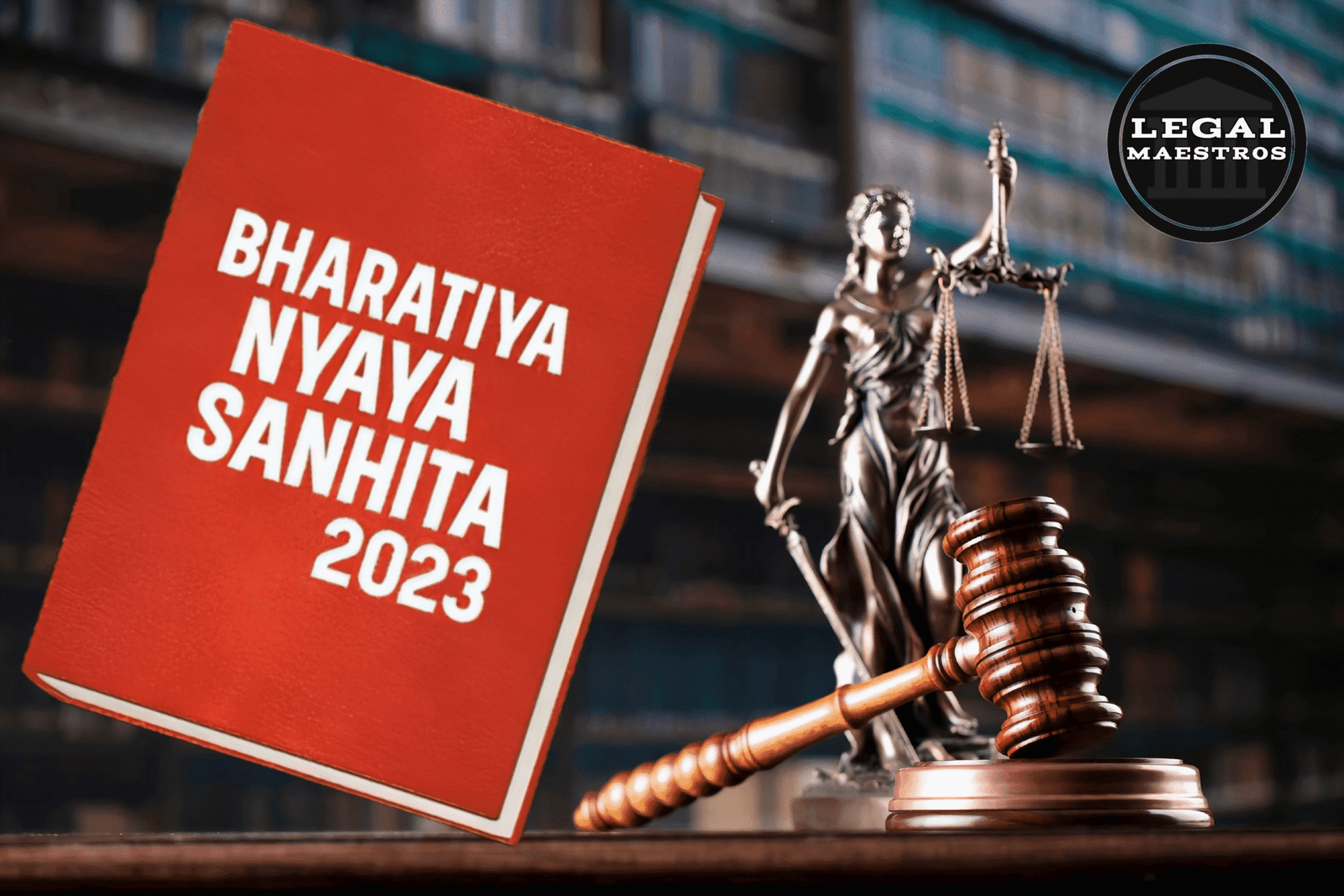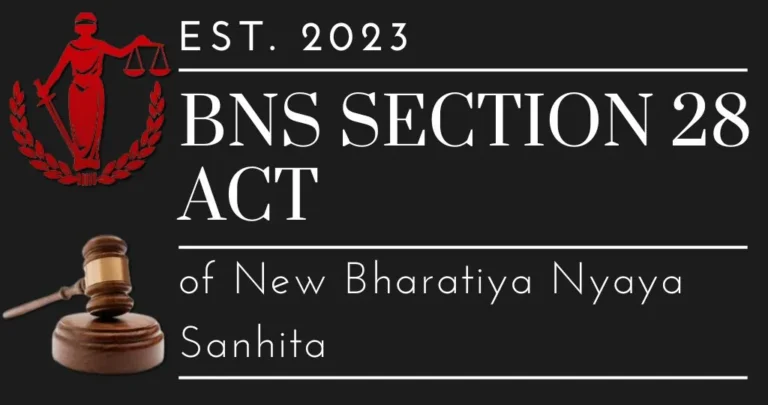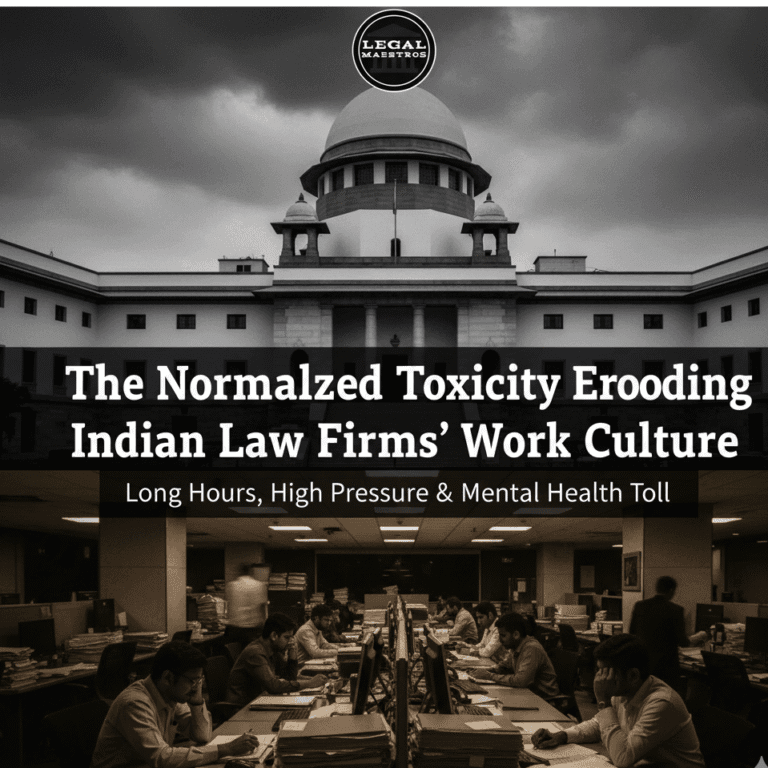
India is experiencing a profound change in the landscape in terms of law with the creation of the Bharatiya Nyaya Sanhita, 2023 (BNS). The current law is a new law that is designed to replace the Indian penal code 1860 (IPC) to modernize and streamline the criminal justice system. Among the most influential elements of this change is Section 85 of the BNS which touches on domestic cruelty. The section is the immediate descendant of the popular and much discussed Section 498A of the IPC.
This article will describe the new law in a simple and easy manner. We shall examine what Section 85 BNS contains, how it compares with and differs from the former Section 498A IPC and what impact the change holds on the people of India.
What is Bharatiya Nyaya Sanhita Section 85?
Section 85 of the BNS is a criminal statute which is designed to save married women from the malevolence of their husbands and their families. The main essence of this section is that it serves as a form of legal protection for women against abuse committed in their homes or marital relationships and gives women the explicit course of action in fighting injustice.
For any queries or to publish an article or post or advertisement on our platform, do call at +91 6377460764 or email us at contact@legalmaestros.com.
According to the law, cruelty committed by a person, whether the husband or the relative of the husband, will be punishable by the law. The penalty will be imprisonment, the duration of which can reach a maximum of three years, and they will face a fine as well.
What Does Cruelty Mean in the Presence of the Law?
In analyzing Section 85, it is worth getting the meaning of what we mean by cruelty. The BNS gives a definite definition that is quite close to the provision of the old IPC provision. Cruelty has the meaning of the law:
- Conduct that is punishable as wilfully intended to cause harm: This type of behavior entails any act of a nature that forces the woman to commit suicide or to sustain serious harm or risk of endangering her life, body or mental or physical health.
- Dowry harassment: Dowry harassment means any harassment of a woman in circumstances involving the demand for dowry. There is also harassment that occurs due to the failure of a woman or her family to fulfill such a request.
This definition is a demonstration that physical and mental abuse is acknowledged by the law as cruelty. It does not only involve physical violence but even emotional and psychological torture, harassment due to dowry are all taken seriously under this section.
For any queries or to publish an article or post or advertisement on our platform, do call at +91 6377460764 or email us at contact@legalmaestros.com.
The history of IPC Section 498A
In order to understand Section 85 of the BNS in its totality, we require to know about its predecessor, which in turn is Section 498A of the IPC. This aspect came into place in 1983 with a great aim of fighting the fact that dowry deaths and domestic violence are on the rise. It was the revolutionary legislation of its time, targeted at shielding married women from the mistreatment they used to endure in their conjugal households.
But with the passage of time, Section 498A has had people in disagreement with the law. It was criticized as having the potential to be abused, though at the same time it furnished a critical legal instrument for many of the real victims of domestic abuse. It was feared that the legislation was being misused in some cases as people resorted to settling personal differences by leveling general or unfounded charges and innocent family members were arrested, courtesy of the law, including elderly parents and remote family relations.
In a number of judgments the Supreme Court of India has in fact recognized these apprehensions and has offered guidelines against misuse of the law. As it is, in the infamous case of Arnesh Kumar v. In the State of Bihar, the court stated that an arrest under this section was not supposed to be mechanical and the police officers should have sufficient grounds before deciding to arrest one.
For any queries or to publish an article or post or advertisement on our platform, do call at +91 6377460764 or email us at contact@legalmaestros.com.
Comparison of BNS Section 85 & IPC Section 498a
In case we compare BNS Section 85 and IPC Section 498A, it is apparent that the new law is a gradual evolution, not a totally new concept. The main provisions, the definition of cruelty, the penalty and the character of the crime remain almost unchanged.
Key similarities:
Purpose: The two areas serve a common purpose, which is to guard against any act of brutality towards married women by a husband or his family members.
Definition of Cruelty: The legislative meaning, under BNS Section 85, of Cruelty is near-definitive to the definition of Cruelty in IPC Section 498A. It also includes physical and mental abuse with dowry harassment.
For any queries or to publish an article or post or advertisement on our platform, do call at +91 6377460764 or email us at contact@legalmaestros.com.
Punishment: The renewed punishment or there is no change in the maximum punishment: imprisonment for up to three years with a fine.
Nature of Offense: They both are “cognizable.” Neither of them is either non-bailable or non-compoundable.
Cognizable: This implies that a police officer does not need an FIR or permission of a court to make an arrest.
For any queries or to publish an article or post or advertisement on our platform, do call at +91 6377460764 or email us at contact@legalmaestros.com.
Non-bailable bail is not a right but is awarded by the court in its discretion.
Non-compoundable: A case filed can not be withdrawn or the parties can not settle it privately after it has been recorded.
New to Bharatiya Nyaya Sarhita?
As much as Section 85 BNS continues with the spirit of Section 498A IPC, the introduction of the new legal framework in its entirety brings some alterations to the general course of action. Some procedural changes may be introduced in the form of the new law the Bharatiya Nagarik Suraksha Sanhita (BNSS) replacing the Code of Criminal Procedure. The directions taken by the Supreme Court on the aspect of avoiding misuse including the one in the case of Arnesh Kumar still hold sound relevance today and serve as a guide on the manner in which the police and the courts approach these cases.
For any queries or to publish an article or post or advertisement on our platform, do call at +91 6377460764 or email us at contact@legalmaestros.com.
The entire Bharatiya Nyaya Sanhita is dedicated to the modernization of law and its victim-centric execution and enhancement of the justice delivery system. This would equate to improved investigations and trials and a more systematic way of dealing with cases of domestic cruelty. The statutes provided under the new laws are also more compact in nature and have fewer sections keeping the statutes shorter.
Section 85 of BNS is important.
The BNS section 85 is still one of the potent and necessary legal instruments due to multiple factors:
- Safety of Women: It offers a powerful legal threat to stop domestic violence and it offers an avenue for women to pursue a safe escape and justice.
- Cattle slaughter: It also bans cow slaughter which is prevalent all the way to the social strata.
- Mental Cruelty: This new definition of cruelty, also including mental and emotional harm recognizes the idea that not all cruelty is physical.
- Empowerment of Women: It enables women to fight back against abuse and to make authorities concerned take action into consideration regarding their grievances.
Exigences and Protections
The issues of misuse that were covered by section 498A will probably persist with section 85 of the BNS. The law is like a curved sword but it is powerful as it is being applied in a fair and just method. To counter these issues, through the years the judiciary has regarded the importance of appropriate investigations and counseling and extreme procedures when it comes to making arrests.
For any queries or to publish an article or post or advertisement on our platform, do call at +91 6377460764 or email us at contact@legalmaestros.com.
Police should adhere to the set guidelines and courts should question the evidence used in each case critically. This is aimed at giving safety to those who are really victims of cruelty, without implicating innocent people.
Section 85 of the Bharatiya Nyaya Sanhita is an extension of a very important legal provision in the battle against domestic cruelty in India. It also keeps the powerful protective structure of its antecedent, Section 498A of the IPC, the definition of cruelty and punishment, and the nature of the offense as well. Although the new code of law targets to be modernized, the content of the law still remains the same. It is an important protection for married women to achieve justice in the holdings of abusers, and a way of seeking justice for victims. The quality of this law, just like any other law, would only be effective in its proper use where the interests of the victim and the possibility of abuse must be reserved.







